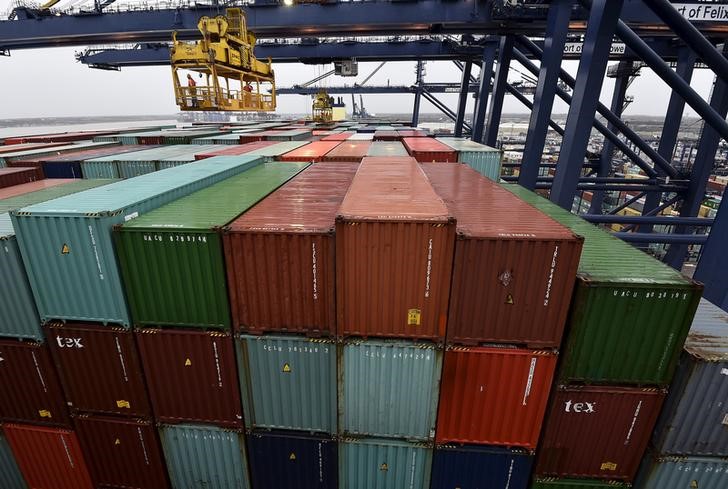LONDON (Reuters) - A British vote to leave the European Union could put 250 billion pounds of trade at risk, both with EU members and with the more than 50 countries that have free-trade agreements with the EU, campaigners to remain said on Tuesday.
Lobby group Britain Stronger in Europe said it had quantified the potential trade that could be lost if the country moved to World Trade Organisation rules without an alternative agreement, as it said many "Leave" campaigners had advocated.
"There is no trading arrangement outside the EU which gives us the free trade we rely on today," said former finance minister and "In" campaigner Alistair Darling.
President Barack Obama underlined the difficult of striking new trade deals to replace EU ones last month when he said Britain would be at the back of the queue for a deal with the United States.
Obama's stark warning appears to have done little to sway voters, however, and opinion polls show the "Out" campaign has edged into the lead.
The lobby group said some 60 percent of Britain's trade, worth 637 billion pounds, was with European Union partners, countries in the European Economic Area or the more than 50 countries with whom the EU had trade deals.
Using UK government analysis, it said trade with these three group was 76 percent, 44 percent and 17 percent higher respectively than it would be without agreements, equating to 247 billion pounds of trade based on 2014 figures.
Brexit campaigners, however, said their opponents were not being consistent in their forecasts.
"Their underlying belief appears to be that Britain - the world's fifth largest economy and a nation with a great history of trading across the globe - would be an economic backwater if it wasn't for Brussels taking control of our trade deals," Vote Leave chief executive Matthew Elliott said on Tuesday.
"That's absurd. After we vote "leave" we will take back control of the powers we've surrendered to EU bureaucrats and stop sending Brussels 350 million pounds a week. That would boost our economy and allow us to spend our money on our priorities."
